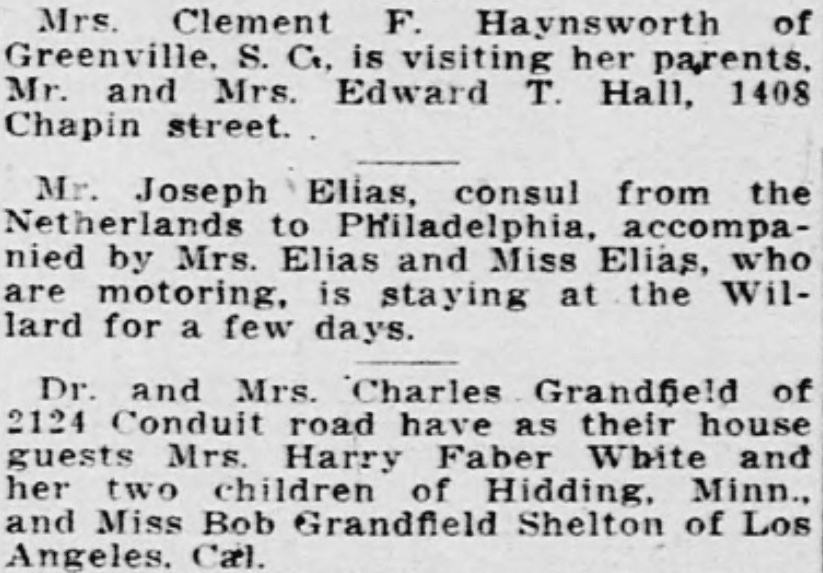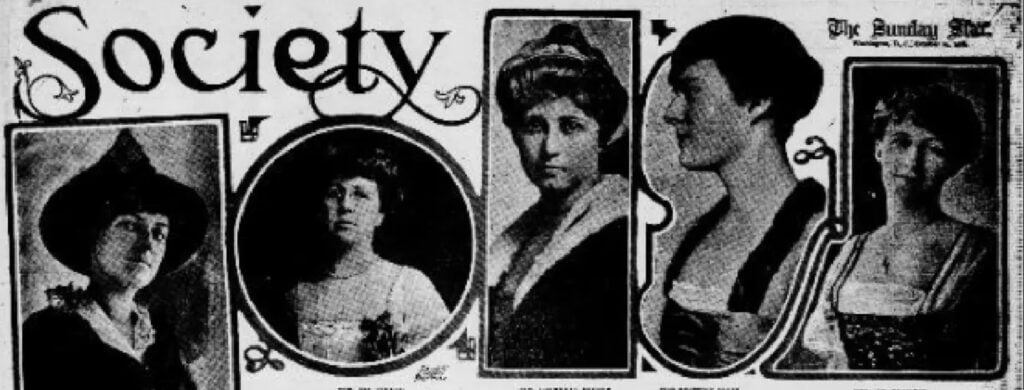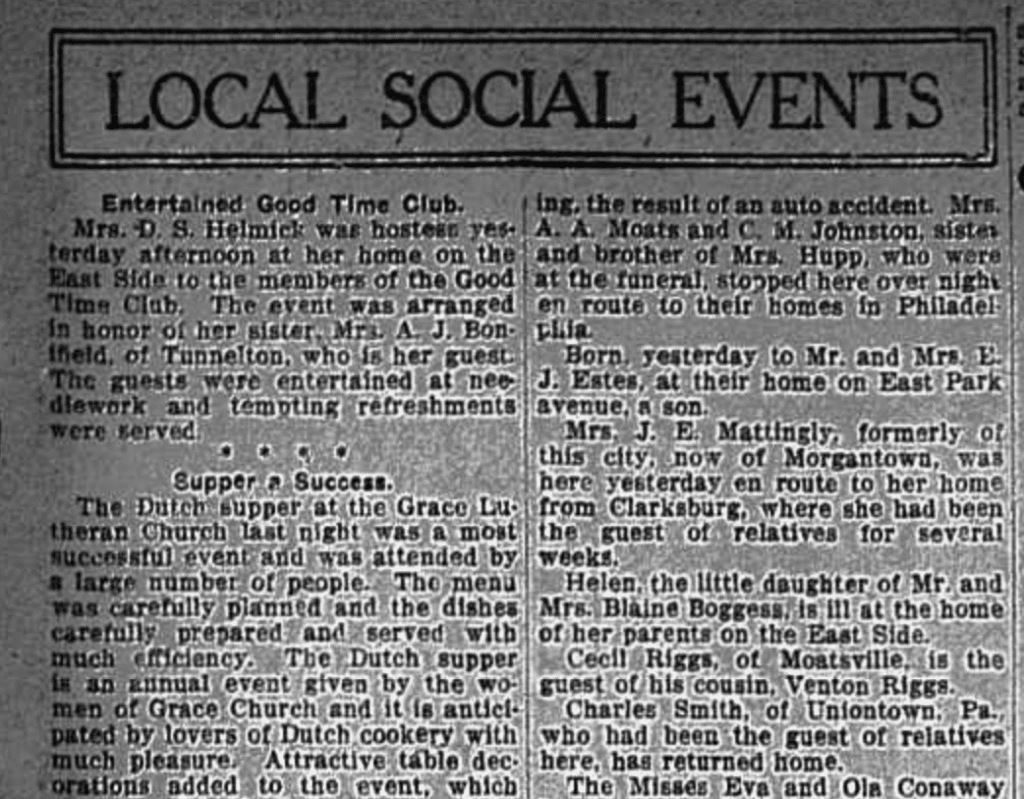Newspapers from the past can provide critical clues about our ancestors’ lives. As a family historian, you’ve likely spent some time searching old newspapers for birth and marriage announcements, as well as obituaries. The information from such sections often include details that can be hard (or impossible) to find anywhere else.
But historical newspapers are so much more than just the obituary pages. They contain oodles of information about our ancestors’ communities — providing clues that can help us understand their daily lives and open doors to new sources of information. In our genealogy courses we stress the importance of taking the time to truly understand the location a person lived in when attempting uncover hard to find (or missing) details.
And there is one section of the newspaper that really stands out when it comes to giving us a glimpse into the daily lives of individuals of the past — the Society pages.

While society pages began as a way to entice readers with juicy tidbits about the wealthy and famous, they later became a common addition to many papers – covering the goings-on of “average” citizens. From birthday parties and hospital stays, to visits with relatives and job changes, the society pages are packed with tidbits that you are very unlikely to ever encounter in a traditional record.
Locating a newspaper that contains data relevant to your research may seem daunting, but the effort is often well rewarded. If you happen to live in the same (or nearby) community as the ancestor you would like to research, then a trip to a local library or historical society may be all it takes to locate the paper you need. Helpful staff and volunteers are often on hand to assist you in locating the information you’re looking for.
If such a trip is not possible your next best bet is to look for a paper online. Luckily, there are several sites that now offer large collections of free scanned newspapers.
To locate the society pages in an old newspaper that relates to your research follow these steps.
1. Start by identifying a family in your tree you would like to research. What community did they live in? What time period are you interested in reviewing? Write these details down.
2. Now research what newspapers were available during that time period and in that community. You can do this with a simple search of the Chronicling America newspaper catalog. They hold information on papers across the US dating to the 1600s. A Google search for the location and time period withe the word “newspaper” will also often turn up results. This is useful for locations outside the US and for smaller, lesser-known papers. Also consider searching for common terms like chronicle, herald, daily, beacon, tribune, ledger, journal, dispatch, tabloid and call when looking for matching papers in Google.
3. Once you have identified a paper or papers, see if they are available online. Take a look at this list of sites that hold free newspaper archives or find out how to use Newspapers.com. If your paper of interest is not available via one of these sites, look at library and historical sites for your area of interest to see if they offer the paper in a smaller collection online.
4. When you locate a paper, you can usually simply flip through the pages until you locate the society section (which may be under a number of different names and is often near the back). If you have a hard time locating the section — try searching for common social event phrases like “was visiting” or “returned home” to bring up relevant pages.
5. Of course, simply reading the society section day by day may become a bit tiresome unless you have a specific date of interest — so you will likely want to try a search for a specific name. It is recommended that you do not try and search for first and last names together as, often, names are listed with abbreviations, first names are emitted or women are listed under their husband’s name. Use multiple spelling of a surname or other details to try and pinpoint an entry of interest in large collections. We have also created a helpful tutorial about Chronicling America’s site that has detailed information on how to use this large online collection. Some of the tips can be applied to other sites as well.
6. If you locate an entry about your ancestor don’t forget to save the newspaper page itself , as well as the newspaper’s title, date of publication, page number and URL for future reference. A note keeping program like Google Keep can be very useful when doing newspaper research online and will help you store relevant information. When attaching newspaper clippings to your tree, consider attaching both a magnified section of the entry as well as the whole page it was pulled from (along with the identifying data listed above). This will allow you to look for additional clues later on and help put your information in context.
Good luck!
Images: Top and Middle – Evening Star (Washington D.C.) October 29, 1916, Bottom – The West Virginian, November 19, 1915.


The society pages have solved several mysteries outright and given hints that have pointed me in the right direction in other cases. One in particular was an announcement that two men, cousins, were traveling together to the funeral of their uncle (my ancestor). It showed that the mysterious older sister of the two known children had survived, gotten married, and had at least one son. The son’s name and the surname gave me the launching point for discovering a whole new branch of the family that had been lost to us for several generations.